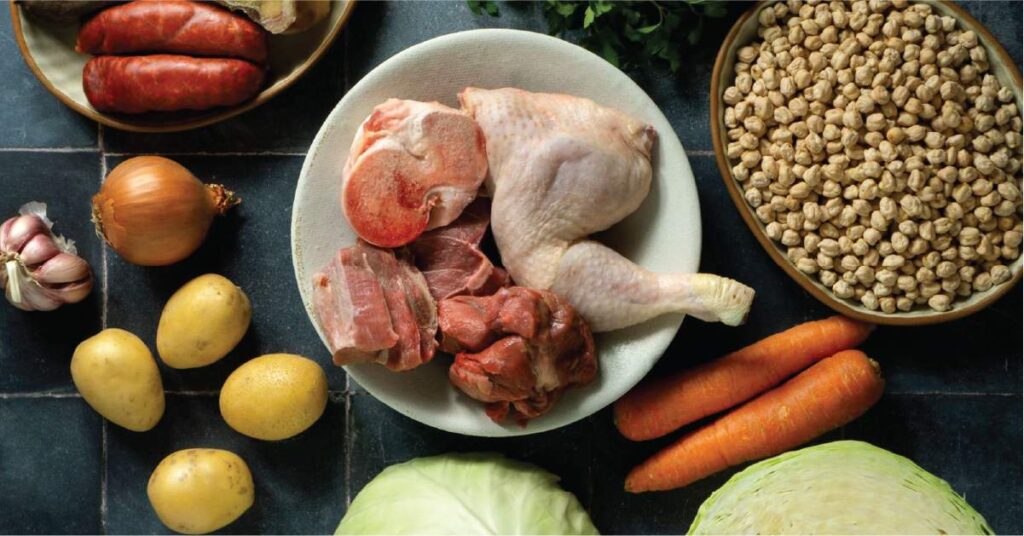Meat vs. Plant-Based Proteins: Which Is Best For Your Health?
In today’s world, people are becoming more conscious of their health and are looking for ways to improve their overall well-being. One of the most important nutrients that the body needs is protein, which is essential for growth and maintenance. However, the debate over which is better for your health – meat or plant-based proteins – has been ongoing for years.
In this article, we will explore the pros and cons of both options to help you make an informed decision about what to include in your diet.

Animal Protein vs. Plant Protein: What is the difference?
Both meat and plant-based proteins have their pros and cons.
The main difference between animal and plant-based proteins is their source. Animal proteins come from meat, poultry, fish, eggs, and dairy products, while plant-based proteins are found in legumes, nuts, seeds, and grains. Animal proteins are considered complete proteins because they contain all the essential amino acids that the body needs.
On the other hand, plant-based proteins are often incomplete and need to be combined with other foods to provide all the necessary amino acids.
Health Benefits of Plant-based Proteins
Plant-based proteins have several health benefits. They are lower in calories and fat than animal proteins and are a great source of fiber, vitamins, and minerals. Plant-based diets have been associated with a lower risk of cardiovascular disease, type 2 diabetes, and certain types of cancer.
Researchers believe that this is due in part to include fiber, vitamins, and minerals found in plant-based foods, which can help support gut health and reduce inflammation in the body. Plant-based proteins also do not contain less-healthy compounds found in fresh meat, such as saturated fat and cholesterol.
One study published in the International Journal of Epidemiology found that those who followed a vegetarian diet had a 22% lower risk of heart disease than those who ate meat. Another study, published in the American Journal of Clinical Nutrition, found that those who ate a diet high in plant protein had a lower risk of mortality than those who consumed animal protein.
Drawbacks of Meat-based Proteins
While animal-based proteins are often considered superior for building muscle mass due to their higher protein quality and better absorption rate, they are not without drawbacks. Consuming processed meats, like bacon and hotdogs, has been linked to an increased risk of cancer, while excessive consumption of red meat has been associated with a higher risk of heart disease and diabetes.
Fresh meat can also be higher in saturated fat and cholesterol than plant-based proteins, which could contribute to poor cardiovascular health. In fact, some studies have suggested that a diet in animal protein could lead to an increased risk of mortality.
Both meat and plant-based proteins have their pros and cons. While animal proteins are a good source of complete protein, they also come with several health risks. Plant-based proteins, on the other hand, are lower in calories and fat and have been linked to a lower risk of chronic diseases. Ultimately, the choice between meat and plant-based proteins comes down to personal preference and dietary restrictions.
The Bottom Line
Both fresh meat and plant-based proteins have their own unique health benefits and potential drawbacks, and a balanced diet that includes both can lead to optimal health outcomes. If you choose to consume fresh meat, it is important to select lean cuts and avoid processed varieties.
When incorporating plant-based proteins into your diet, focus on variety and include a mix of complete proteins (like quinoa and soy) and complementary proteins (like beans and rice) throughout the day.
Ultimately, the decision to consume meal or plant-based proteins is personal, and should be based on individual dietary preferences, health goals, and cultural or ethical considerations. Regardless of your choice, focusing on a diet rich in whole foods, including plenty of fruits, vegetables, and whole grains, is key to promoting overall health and wellbeing.
Check out The Good Meat for the best quality frozen meats products available online!




